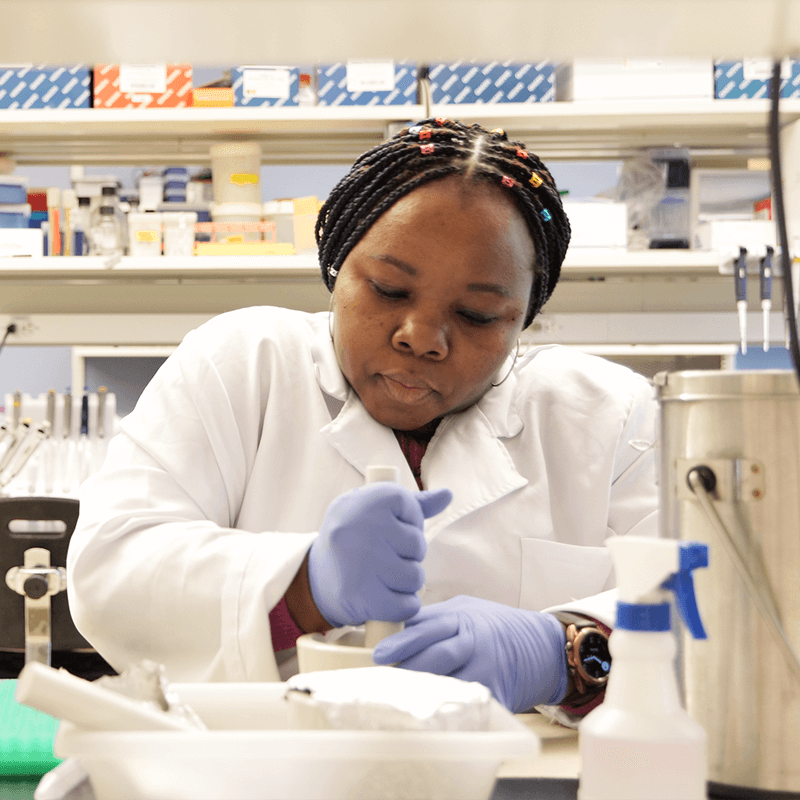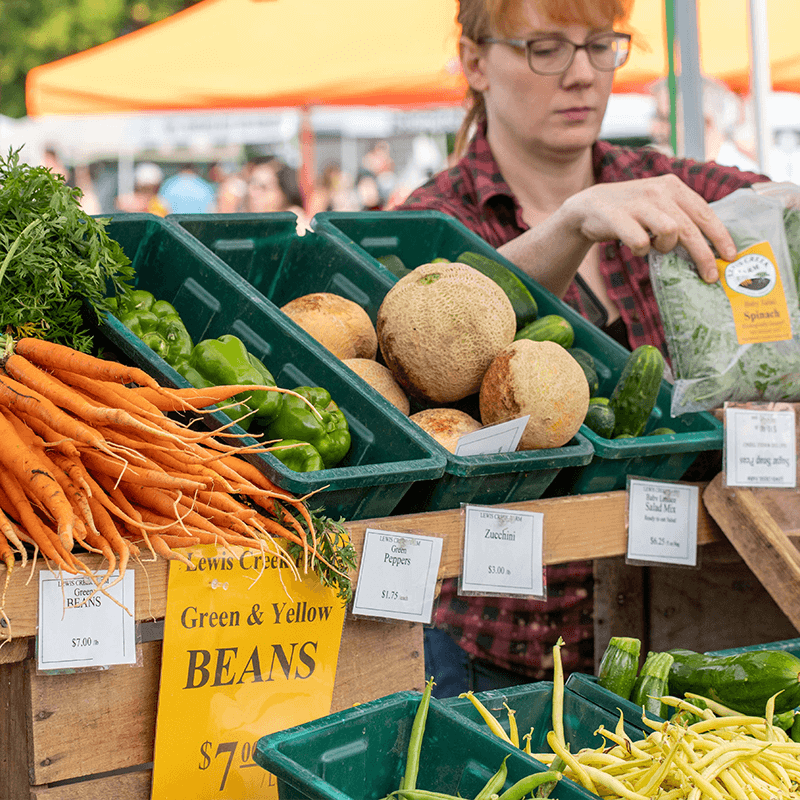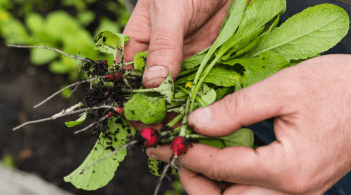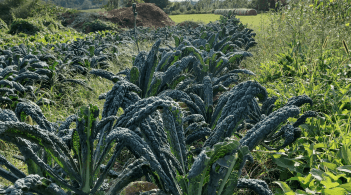
Our Mission
We foster increasingly equitable, ecologically sustainable, and resilient food systems in and beyond the Northeastern U.S. through transdisciplinary and community engaged research.

Our Vision
We envision a world in which all people are nourished and satisfied by the food they eat and where food systems sustain livelihoods and the natural systems upon which we all depend.
The UVM Food Systems Research Center (FSRC) conducts interdisciplinary and transdisciplinary research to study food systems: the networks of people, institutions, physical infrastructure, and natural resources through which food is grown, processed, distributed, sold, prepared, and eaten. We examine how different parts of a system interact to understand why food systems function the way they do. The FSRC focuses on the Northeast U.S. but considers the relationship of food systems across scales from local to global.
The FSRC is the first USDA-funded center in the U.S. to study the complex interconnections between the economic, environmental, and social components of the food system regionally.
Our interdisciplinary and transdisciplinary focus allows us to bridge the gap between nutrition and sustainable agriculture research for more impactful discoveries.
Our one-of-a-kind research center:
Facilitates cross-functional collaboration
We break down preconceived notions and siloed thinking by bringing together researchers with diverse backgrounds and experiences.
Focuses on small and medium farms in the Northeast
Vibrant food systems support operations across a range of scales. In the U.S., 89% of farms are small. We look at their relationship to the environment, consumer food choices, nutrition, and health outcomes.
Measures and defines sustainability outcomes
Sustainability isn’t always clearly defined, recognized, or valued by markets and policies. We work to give leaders the data they need to change that.
Fosters inclusive dialogue
We encourage compassionate, empathetic, and inclusive discussions rooted in a willingness to understand diverse backgrounds, lifestyles, and points of view.
History
In June 2019, Senator Patrick Leahy (D-Vt.) announced federal funding for the Food Systems Research Center. Leahy secured $11 million in 2021 to support the Center’s work researching all facets of the regional food system, from production agriculture to food security.
The FSRC is a collaboration between UVM and the U.S. Department of Agriculture’s (USDA) Agricultural Research Service (ARS), with USDA scientists working on campus alongside University researchers. The FSRC is the first USDA-funded center in the U.S. to study the complex interconnections between the economic, environmental, and social components of the food system regionally.


